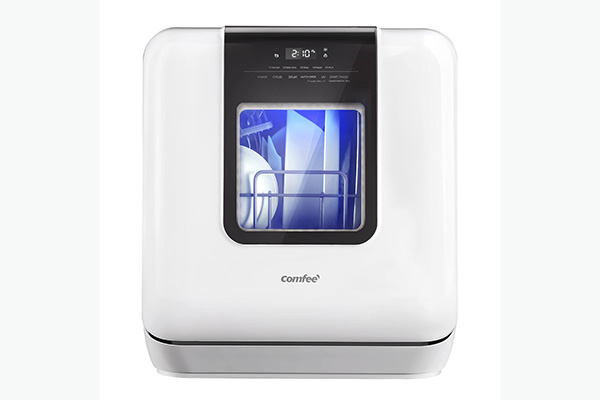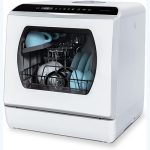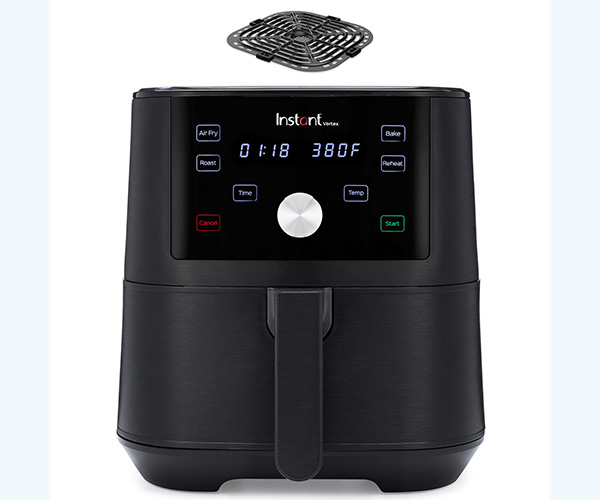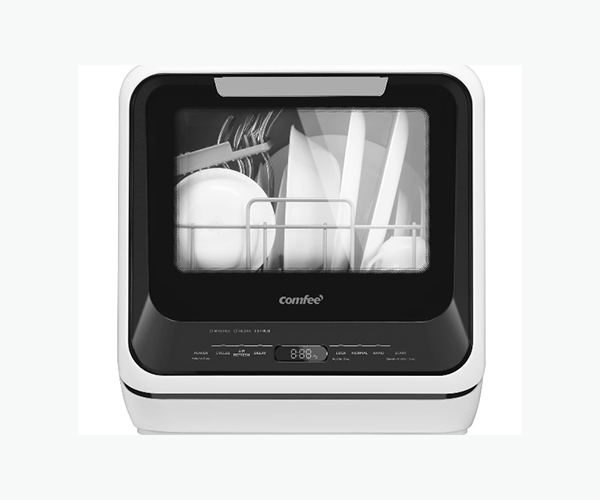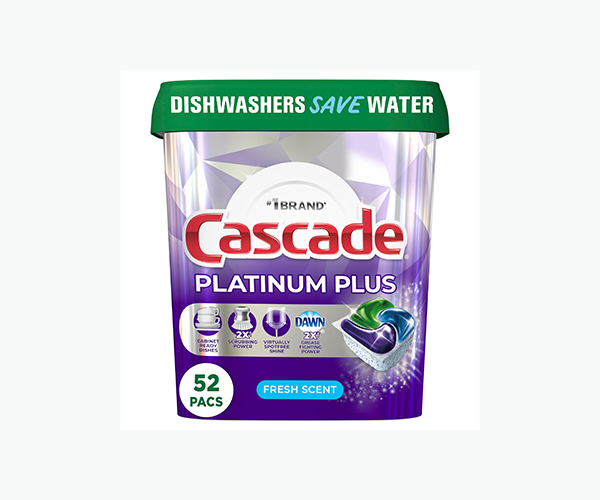Introduction
Dishwashers have become an essential part of modern kitchens, saving time and effort in cleaning up after meals. But like any appliance, dishwashers are prone to wear and tear, and understanding when they need repair is crucial to maintaining their efficiency. This comprehensive guide will help you recognize the top signs that your dishwasher may be in need of repair and provide you with the necessary knowledge to ensure it continues to function smoothly.
1. Dishes Aren’t Coming Out Clean
One of the primary functions of a dishwasher is to leave your dishes spotless. However, if you start noticing that your dishes are coming out with food particles or soap residue, it’s a clear indication that something is wrong. The cleanliness of your dishes is directly linked to your dishwasher’s ability to function effectively, and when it fails to deliver on this basic task, it’s time to investigate the underlying causes.
Possible Causes:
- Clogged Spray Arms: The spray arms in your dishwasher are responsible for distributing water to clean your dishes. Over time, these can become clogged with food particles, soap residue, or mineral deposits, preventing water from reaching all the dishes effectively. This can result in uneven cleaning, with some dishes coming out clean while others remain dirty.
- Faulty Water Inlet Valve: The water inlet valve controls the flow of water into the dishwasher. If this valve is malfunctioning, it may not allow enough water to enter the dishwasher, leading to poor cleaning performance. Low water pressure can also contribute to this issue, as it affects the overall washing cycle.
- Malfunctioning Detergent Dispenser: If the detergent dispenser doesn’t open properly during the wash cycle, your dishes won’t get the cleaning power they need. This can leave your dishes greasy or covered in residue.
Troubleshooting Tips: Start by inspecting the spray arms. If they’re clogged, you can usually clean them by removing any debris or buildup. It’s also a good idea to run a cycle with a dishwasher cleaner to break down any mineral deposits. If the problem persists, check the water inlet valve to ensure it’s allowing sufficient water into the machine. If you suspect the detergent dispenser is the issue, observe whether the detergent pod or powder is fully used during the cycle. In cases where troubleshooting doesn’t resolve the issue, it might be time to call a professional technician to diagnose and fix the problem.
When to Call a Professional: If your dishes consistently come out dirty despite following these troubleshooting steps, it’s likely that there’s a more significant underlying problem. A professional can perform a thorough inspection and repair or replace faulty components, ensuring your dishwasher returns to its optimal performance.

2. Strange Noises During Operation
Dishwashers typically operate with a gentle humming or swishing sound as water moves through the machine. However, if you start to hear unusual noises like grinding, squealing, or banging, it’s an indication that something is amiss. Understanding the different types of noises and their potential causes can help you address the problem before it leads to more significant damage.
Identifying the Sounds:
- Grinding Noise: This sound often indicates debris stuck in the dishwasher’s pump or spray arm. It can also signal a problem with the motor bearings, which may be wearing out.
- Squealing Noise: A high-pitched squeal could be due to a worn-out or loose belt. It might also indicate that the motor bearings are in need of lubrication or replacement.
- Banging Noise: If you hear a banging sound during the wash cycle, it could be due to loose components inside the dishwasher or an issue with the spray arm hitting something inside the machine.
DIY Fixes: If you hear grinding noises, start by checking the dishwasher’s pump and spray arm for any debris. This can usually be done by removing the bottom rack and inspecting the components. Clear out any food particles or foreign objects that might be causing the noise. For squealing noises, you might need to lubricate the motor bearings or tighten any loose belts. If the banging noise persists, check that all components are securely in place and that nothing is obstructing the spray arm.
When to Seek Professional Help: While some noise-related issues can be resolved with basic troubleshooting, persistent or loud noises often indicate a more serious problem. If the noises continue after your attempts to fix them, it’s advisable to contact a professional technician. They can determine whether the motor, pump, or other critical components need repair or replacement.
3. Water Leaks Around the Dishwasher
Water leaks are one of the most concerning signs of a dishwasher malfunction. Not only can they cause damage to your kitchen floors and cabinets, but they can also lead to mold growth and other health hazards if not addressed promptly. Understanding the common causes of dishwasher leaks can help you take swift action to prevent further damage.
Understanding the Severity: Water leaks can vary in severity, from a small puddle under the dishwasher to significant water damage in your kitchen. Even minor leaks should be addressed immediately, as they can worsen over time and lead to costly repairs.
Common Causes:
- Damaged Door Gasket: The door gasket is a rubber seal that runs along the edge of the dishwasher door, preventing water from escaping during the wash cycle. Over time, this gasket can become worn out, cracked, or dislodged, leading to leaks.
- Cracked Hoses or Faulty Connections: The hoses that supply water to and from the dishwasher can crack or develop leaks at the connections. This is especially common in older dishwashers or in cases where the hoses have not been properly maintained.
- Blocked Drainage: If the dishwasher’s drainage system is blocked, water can back up inside the machine and eventually overflow onto your kitchen floor.
Immediate Actions: If you notice water leaking from your dishwasher, the first step is to turn off the water supply to the appliance. This will help prevent further water damage while you investigate the source of the leak. Use towels or a mop to clean up any standing water to minimize the risk of damage to your floors.
Preventive Measures: Regularly inspect the door gasket for signs of wear and tear. If you notice any cracks or gaps, replace the gasket promptly to prevent leaks. Additionally, check the hoses and connections for any signs of damage or wear. Replacing old or damaged hoses can prevent leaks before they start.
When to Call a Technician: If the leak persists after replacing the gasket and checking the hoses, it’s time to call a professional. A technician can perform a thorough inspection to identify the source of the leak and recommend the necessary repairs. In some cases, the issue may be with the dishwasher’s internal components, such as the pump or seals, which require professional attention.
4. Dishwasher Doesn’t Drain Properly
Proper drainage is essential for your dishwasher to function correctly. If you notice that water is not draining at the end of the cycle, or if there’s standing water in the bottom of the dishwasher, it’s a sign of a problem that needs immediate attention. Poor drainage can lead to unpleasant odors, mold growth, and even damage to your dishwasher if not addressed promptly.
Signs of a Drainage Issue:
- Standing Water: One of the most obvious signs of a drainage issue is water remaining in the bottom of the dishwasher after a cycle. This can happen if the dishwasher is not able to pump out all the water, leaving a pool at the bottom.
- Foul Odors: If water is not draining properly, it can lead to the buildup of food particles and soap residue, which can cause unpleasant odors to emanate from your dishwasher. These odors can persist even after the dishwasher has been emptied.
- Slow Draining: If the dishwasher takes longer than usual to drain, or if it only partially drains, this could indicate a blockage or a problem with the drainage system.
Possible Causes:
- Clogged Drain Hose or Filter: The drain hose and filter are responsible for removing water from the dishwasher. Over time, these components can become clogged with food particles, grease, or other debris, preventing proper drainage.
- Faulty Drain Pump: The drain pump is responsible for pushing water out of the dishwasher and into the drain. If the pump is faulty, it may not be able to remove all the water, leading to drainage problems.
- Problems with Garbage Disposal Connection: If your dishwasher is connected to a garbage disposal, a clog in the disposal can prevent the dishwasher from draining properly. This is a common issue if the disposal hasn’t been used recently or if it’s clogged with food waste.
Steps to Take: Start by checking the drain hose and filter for any clogs. The filter is usually located at the bottom of the dishwasher and can be easily removed for cleaning. If the filter is clogged, rinse it under warm water to remove any debris. Next, inspect the drain hose for any kinks or blockages. If the hose is clogged, you may need to remove it and clean it thoroughly. Additionally, check the connection between the dishwasher and garbage disposal to ensure it’s clear of any obstructions.
Professional Assistance: If your dishwasher still doesn’t drain properly after performing these checks, it’s likely that the issue is more complex and requires professional intervention. A technician can diagnose whether the problem lies with the drain pump, the motor, or another internal component, and perform the necessary repairs to restore proper drainage.
5. Dishwasher Doesn’t Start or Stops Mid-Cycle
A dishwasher that refuses to start or stops mid-cycle can be incredibly frustrating. This issue can leave you with dirty dishes and disrupt your kitchen routine. Understanding the potential causes and solutions for this problem can help you get your dishwasher back up and running quickly.
What This Could Mean: When your dishwasher doesn’t start, it could be due to a range of issues, from electrical problems to issues with the door latch. Similarly, if the dishwasher stops mid-cycle, it could be a sign of a more serious malfunction.
Likely Causes:
- Faulty Control Board: The control board is the brain of your dishwasher, responsible for regulating all its functions. If the control board is faulty, it may not send the correct signals to start the cycle or keep it running.
- Broken Door Latch: The dishwasher’s door must be securely latched for it to start a cycle. If the latch is broken or misaligned, the dishwasher may not start or may stop mid-cycle.
- Power Supply Issues: If there’s a problem with the power supply to the dishwasher, such as a blown fuse or tripped circuit breaker, the appliance may not start or may stop suddenly during a cycle.
What to Check First: Begin by ensuring that the dishwasher door is properly closed and latched. If the door latch appears to be in good condition, check the power supply by inspecting the circuit breaker and fuse box. Resetting the breaker or replacing a blown fuse may resolve the issue. If the dishwasher still doesn’t start, it’s time to look at the control board.
When to Contact a Repair Service: If your dishwasher doesn’t respond to basic troubleshooting, it’s best to call a professional repair service. A technician can diagnose whether the issue lies with the control board, the door latch, or another component. In some cases, replacing the control board or other critical parts may be necessary to restore your dishwasher’s functionality.
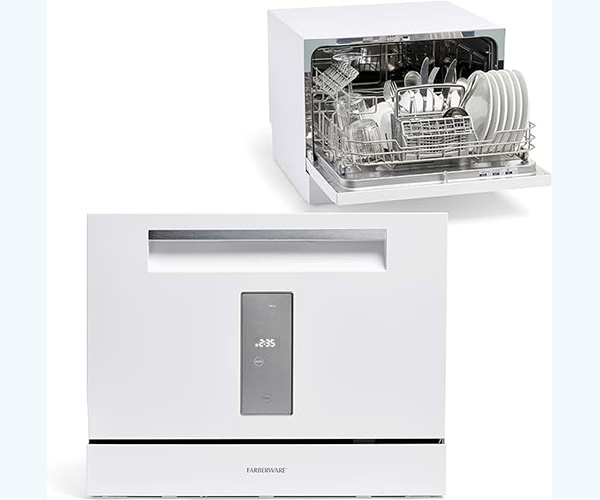
Preventive Maintenance Tips for Your Dishwasher
Preventive maintenance is key to ensuring your dishwasher continues to operate efficiently for years to come. By taking proactive steps to care for your appliance, you can avoid many common problems and extend the life of your dishwasher.
Regular Cleaning Routines: Keeping your dishwasher clean is essential for its performance. Regularly clean the filters, spray arms, and seals to prevent the buildup of food particles and soap residue. Running a monthly cycle with a dishwasher cleaner can also help break down mineral deposits and keep the interior of your dishwasher fresh.
Using the Right Detergent: The detergent you use can have a significant impact on your dishwasher’s performance. Choose a detergent that’s specifically designed for use in dishwashers and follow the manufacturer’s recommendations for the correct amount. Using too much or too little detergent can affect the cleaning power and lead to residue buildup.
Checking for Wear and Tear: Regularly inspect your dishwasher for signs of wear and tear. This includes checking the hoses for cracks, the door gasket for leaks, and the spray arms for clogs. Replacing worn-out parts before they fail can prevent more serious problems from developing.
Scheduling Professional Inspections: Even with regular maintenance, it’s a good idea to have your dishwasher inspected by a professional once a year. A technician can perform a thorough inspection, clean hard-to-reach areas, and identify any potential issues before they become major problems.
When to Consider Replacing Your Dishwasher
While repairs can extend the life of your dishwasher, there comes a point when replacement is the more cost-effective option. Knowing when to replace your dishwasher can save you from the frustration of frequent breakdowns and expensive repairs.
Age and Efficiency: Dishwashers typically last between 7 to 12 years. As your dishwasher ages, it may become less efficient, using more water and energy to achieve the same results. If your dishwasher is over 10 years old and requires frequent repairs, it may be time to consider a replacement.
Frequent Repairs: If you find yourself calling a repair technician multiple times a year, the cost of repairs can quickly add up. At some point, it may be more economical to invest in a new dishwasher rather than continuing to repair an old one.
Cost Analysis: When deciding whether to repair or replace your dishwasher, consider the cost of repairs versus the price of a new appliance. If the repair cost is more than half the price of a new dishwasher, it’s usually better to replace it. Newer models are also likely to be more energy-efficient, saving you money on utility bills in the long run.
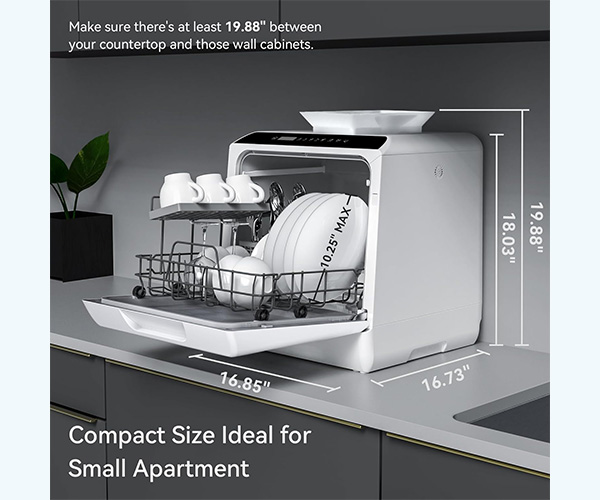
Conclusion
Recognizing the signs that your dishwasher needs repair is essential to maintaining a functional and efficient kitchen. From dirty dishes to strange noises, water leaks, drainage issues, and a dishwasher that won’t start, understanding these common problems and how to address them can save you time, money, and frustration. Regular maintenance and timely repairs will ensure your dishwasher continues to perform at its best, providing you with clean dishes and a more enjoyable kitchen experience.
Investing in professional inspections and knowing when to replace your dishwasher are also crucial steps in managing this essential appliance. By staying informed and proactive, you can keep your dishwasher running smoothly for years to come, avoiding the inconvenience and expense of unexpected breakdowns.

